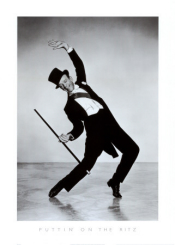What’s The Quickest Way To Likeability?
What do you think is the quickest way to become more likable? Please tell me what you think in the comment section below.
What do you think is the quickest way to become more likable? Please tell me what you think in the comment section below.
I’m your customer and I want you to know that I like you and I like doing business with you. Some of my reasons may sound a little odd, and to tell you the truth I don’t fully understand them myself, but I assure you my comments are sincere.
1. I like doing business with you because you like me. You are the only supplier who has ever taken the time to send me a personal note stating how you feel.
2. I like doing business with you because you are like me in so many ways. We share common beliefs and experiences. Because of this I know you understand me better than any other supplier.
3. I like doing business with you because you are an expert at what you do. I know I can count on you to provide me with accurate information saving me time and money.
4. I like doing business with you because you don’t take yourself to seriously. You can laugh at yourself and that makes me comfortable to be around you.
5. I like doing business with you because I feel happy when I’m with you. I look forward to seeing you and hearing from you because you make me feel joyful when I’m with you. You make me laugh.
6. I like doing business with you because you pay attention to how you present yourself to me. It’s one of the many things you do to show your respect for our relationship.
7. I like you because you’re genuine. I never feel like you’re putting on airs or trying to be someone you’re not. I trust you.
8. I like you because you associate with others that I admire. I do judge people by the company they keep, and you keep good company.
9. I like you because I like to associate with people other people admire. I feel special and important when I’m in your presence.
10. I like you because you are attentive to my needs. You take the time to ask pertinent questions before offering a solution. You care.
11. I like you because you’re courteous. You respect my time and space and you always let me know how much you appreciate my business.
12. I like you because I know you’re on my team. I can count on you to be there when I need you.
13. I like you because you give me the opportunity to do things for you too. You’ve done so much for me. It makes me feel good about myself when you allow me to do something as simple as buy your lunch.
14. Most importantly, I like you because I like me best when I’m with you. You make me feel smart and interesting and funny and wise. This is your greatest gift.
And because I like you, I want to see you succeed. I want to buy what you’re selling and refer you to everyone I know. I’m delighted to go out of my way to add to your success.
Thank you for making it so easy for me to like you, do business with you and refer you to my friends with confidence.
Signed, Your Customer
Feel free to use all or part of this letter and send it to your favorite supplier. I assure you, it’s a letter they will cherish and remember for the rest of their life.
 Does likeability matter when looking for a job? I wondered the same thing and decided to find out what the experts had to say on the subject.
Does likeability matter when looking for a job? I wondered the same thing and decided to find out what the experts had to say on the subject.
I asked professional recruiters who interview thousands of college graduates on campuses all over the country this question.
Do you think being perceived as likable during a job interview is important if a student wants to be seriously considered for a job at your company? If so, why?
Click on the Comments button and read what they experts had to say below.
 I had another interesting conversation about likeability with my son Joel last night. We were talking about the different behavior people demonstrate on Skype and what we learned about ourselves and others while using it.
I had another interesting conversation about likeability with my son Joel last night. We were talking about the different behavior people demonstrate on Skype and what we learned about ourselves and others while using it.
If you’re not familiar with Skype, it’s a free Internet based video conferencing tool. If you and the person you want to communicate with have a computer, a video camera and a fast Internet connection, you can see and speak to each other over the Internet for free.
Skype is not only a very cool way to communicate with family and friends, it also provides an amazing insight into human nature and likeability.
When you Skype with someone, you’ll see a video of them and a video of yourself on your computer screen. And, unlike talking to someone in person where you have an opportunity to look directly into their eyes, when you use Skype you must look into the camera on your computer in order to create the illusion that your looking at them. If you don’t, the person on the other end of the connection will think you’re distracted and not paying attention.
People do one of three things when they Skype: they look directly into the camera, they look at the video of the person they’re speaking to, or they look at themselves. All three are problematic and here’s why.
When you look directly into the camera, it looks to the person on the other end of the connection as if you’re looking directly at them and that’s great. The problem however, is that when you look into the camera, you’re missing the show. You’re not looking at the person you’re talking to. You can’t respond to their expressions because you’re not looking at them.
The second option is to look at the video of the person your talking to. It seems like the natural thing to do, but it will not provide the results you expect. When you look at the video of them on your screen, it looks to them as if you’re looking off into the distance.
 The final option, which is the worst and most common thing people do when using Skype, is to look at yourself during the conversation. It’s not only narcissistic, but it creates the feeling that you’re not paying attention … which you’re not, because you’re looking at yourself.
The final option, which is the worst and most common thing people do when using Skype, is to look at yourself during the conversation. It’s not only narcissistic, but it creates the feeling that you’re not paying attention … which you’re not, because you’re looking at yourself.
Both Joel and I have had enough experience on Skype to know that this is true. We both look at ourselves when we use Skype and noticed that virtually everyone else we talked to do the same thing. Here’s what we decided to do.
Start by hiding the video feed of you on your computer. This will help you avoid the temptation to look at yourself during the conversation. You can either move your video off screen or minimize the window so that it does not show.
Then, reduce the size of the video of the person you’re talking to and move their video window directly under your camera. The closer their video is to your camera, the more it will create the illusion that you’re looking at them during the conversation.
Change your gaze from their video to your camera. This takes practice … a lot of practice. It’s an unnatural thing to do, but it will give you the results you’re looking for.
When I was younger I made a commercial for Federal Express. It was hard enough to memorize my lines, but looking directly into the camera while delivering them was impossible. I found myself looking at everyone in the room including the cameraman, the director and the producer.
After a dozen takes, the director asked me to look at the results of my work. He played back the video and I was stunned to find how awkward and inattentive I looked. After that, I had no problem looking directly into the camera and the results were great.
And finally, knowing that the majority of people are more concerned about how they look than how you look, start your conversation by giving them an external compliment. Tell them how wonderful they look and be specific.
Not only will they appreciate you noticing, but if you follow their eyes during your compliment, you will be able to determine exactly where and how often they look at themselves during your conversation … and it’s a lot.
Don’t let this hurt your feelings. Odds are, the person you’re conferencing with doesn’t know any better, and even if they did, it’s unlikely they will change their behavior.
The secret to demonstrating your likeability on Skype, or on any other video conferencing system, is to do what is unnatural. Change you gaze from the camera on your computer to the video of the person you’re talking to. Don’t worry about not looking at them during your entire conversation, they will look at themselves enough to make up for both of you. That’s life in the 21st Century.
 Every so often the universe goes into overdrive to get a message through to me, and recently she’s been working overtime. I’m sure she sees it as divine intervention, but I see it as being a little pushy. Either way, I get the message and it always serves me. I just wish she wasn’t so in-your-face about it.
Every so often the universe goes into overdrive to get a message through to me, and recently she’s been working overtime. I’m sure she sees it as divine intervention, but I see it as being a little pushy. Either way, I get the message and it always serves me. I just wish she wasn’t so in-your-face about it.
Last month I read a fascinating article by my friend and the author of “Go-Givers Sell More,” Bob Burg. Bob wrote about how the people who work at the Ritz-Carlton Hotel greet their guests. Rather than using slang terms like, “How are ya?” or “How ya doin?” the employees greet their guests with, “Good morning,” “Good afternoon” or “Good evening.” In essence, they’re Puttin’ On The Ritz.
The term “Puttin’on the Ritz” has been around for the last 80+ years. It’s original meaning was inspired by the very classy Ritz-Carlton Hotel which first opened in Boston in 1927 and it was promoted by the musical film, “Puttin on the Ritz” by Harry Richmond in 1930. At that time, the term meant to dress up stylishly, which is the positive connotation that term still holds today.
Over the years however, a negative connotation has crept into the meaning of that phrase. Today it is used both as a compliment and an insult depending on where and how it’s used.
On the positive side it means to improve your appearance, not only in the way you dress, but also in the way you carry yourself. It represents being the best you, you can be.
On the negative side it’s used to describe someone who looks foolish by trying too hard to impress others. Someone who looks and feels awkward because they’re out of their element.
 A few days after I read Bob’s article, I received a call from my son Joel telling me that the Ritz-Carlton had offered him a job in Naples, Florida at their flagship property. He went on to tell me that he was planning to attend their orientation class in the next few days.
A few days after I read Bob’s article, I received a call from my son Joel telling me that the Ritz-Carlton had offered him a job in Naples, Florida at their flagship property. He went on to tell me that he was planning to attend their orientation class in the next few days.
In the past I would have been shocked to learn that one of the most prestigious hotels in the world would have hired anyone without training or experience in the hospitality industry. But not today, and not when it comes to either of my sons. After watching them both flawlessly apply the laws of likeability with everyone they’ve ever met, I wasn’t surprised that the Ritz hired Joel on the spot. I’ve come to expect nothing less.
What did surprise me however was that he accepted the job. This is not the path I would have expected my free spirited, very likable and musically talented son to follow. It’s not like he ever refused to wear the standard issue top hat, tails and cane when we lunched in the Hamptons, it’s just that I’ve always seen him as a touring musician, a teacher or the owner of a sidewalk cafe in Paris. Accepting a job at the Ritz, that surprised me.
Before we hung up, I asked if he would do me a favor and confirm if what Bob Burg wrote about how the employees at the Ritz greeted each other was true. Here’s what he discovered.
 Yes, it was true that the Ritz-Carlton does encourage all of their employees to greet their guests using the more formal greeting. But, in a very Ritz-Carlton fashion, the woman leading the orientation told the new hires that it was more important that they use their genuine greeting, rather than the more formal and approved Ritz-Carlton greeting, at least initially. Their hope was that every employee would soon feel comfortable offering the more formal greeting.
Yes, it was true that the Ritz-Carlton does encourage all of their employees to greet their guests using the more formal greeting. But, in a very Ritz-Carlton fashion, the woman leading the orientation told the new hires that it was more important that they use their genuine greeting, rather than the more formal and approved Ritz-Carlton greeting, at least initially. Their hope was that every employee would soon feel comfortable offering the more formal greeting.
After two days of working at the Ritz, my son quit. And, if you’re like most people including many of his friends and family members, you’re probably thinking, what a fool! Why would anyone leave a job at the Ritz-Carlton after only two days, especially when jobs are so hard to find during this deep recession. Here’s the answer.
According to Joel, there were two reasons he decided to walk away from what could have become a very profitable career choice at the Ritz-Carlton.

The first thing he noticed while working at the Ritz was the culture. The Ritz-Carlton caters to a specific group of people and they serve them in a very specific way. After watching how the employees interacted with their guests, Joel decided that this was outside of his comfort zone. He did not want to come to work everyday and feel like he had to be “Puttin’ on the Ritz” to connect with his customers. It wasn’t natural for him. It wasn’t genuine for him. It was against everything he knew to be true about honestly connecting with people.
The second thing he noticed was that the employees who excelled at the Ritz-Carlton were also “Puttin’ on the Ritz” and they were in their element. They were coming to work every day and being the best them they could be. They were genuine. They were happy. They were a perfect match for the Ritz-Carlton Hotel.
The Ritz offers great customer service, but so does Disney. These are two very different companies catering to two very different guests and both pride themselves on building world class reputations for service.
 Employees at both companies earn their living by “Puttin’on the Ritz.” And by that I mean dressing to the hilt and carrying themselves in an appropriate manner to meet the expectations of their audience. But you would have to agree that even though the service is equally spectacular at both companies, their method of delivering that service in a genuine manner is completely different.
Employees at both companies earn their living by “Puttin’on the Ritz.” And by that I mean dressing to the hilt and carrying themselves in an appropriate manner to meet the expectations of their audience. But you would have to agree that even though the service is equally spectacular at both companies, their method of delivering that service in a genuine manner is completely different.
Can you imagine having bathroom attendants at Disney World or having Pluto and Dumbo greet you at the desk when you check-in to the Ritz-Carlton Hotel?
Being genuine is critical when it comes to being liked. If you don’t feel like you can be yourself in a particular place, you’re in the wrong place … even if that place is as spectacular as the Ritz-Carlton Hotel in Naples, Florida.
As Polonius said in the First Act of Hamlet, “This above all: to thine own self be true, and it must follow, as the night the day, thou canst not then be false to any man.”
I’ve struggled with this lesson my entire life and I still find that I put myself in circumstances where I pretend to be someone I’m not. I don’t like the way I feel about myself when I do that and I’m sure the people with me don’t like it either.
Don’t wait for the universe to use your son or daughter or spouse or friend to remind you how important being genuine is to your happiness. Learn what you can from Joel and move on with your life, there are thousands of other wonderful lessons just waiting for you to discover.
When you’re true to yourself, you will be true to others. When you’re true to others, they will like you, respect you and be true to you in return. Count on it!
 Do you know the sweetest sound in the world? It’s your name of course. Calling someone by their name is the quickest way to grab and hold their attention. It works with animals too.
Do you know the sweetest sound in the world? It’s your name of course. Calling someone by their name is the quickest way to grab and hold their attention. It works with animals too.
Back in the day when I was giving 150 speeches a year on customer service, someone recorded a presentation I gave on the subject of names. I think you will enjoy this little story about how the employees of a new restaurant in Marietta, Georgia used this technique to become an overnight success. You can do the same.
Just click the PLAY button below.